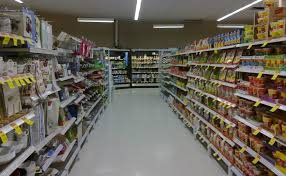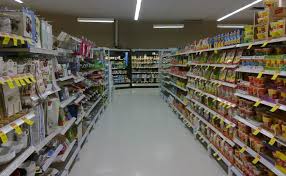
A research has suggested that the extreme weather in the UK this year would result in an increase of at least 5 per cent in the prices of meat, vegetable and dairy prices.
Consumers could have to shell out 7 pounds every month because of the big freeze and heatwave this year, said consultancy CEBR.
Earlier, price warning on peas, lettuces and potatoes was issued by farmers' representatives.
There has been an appreciation of up to 80 per cent since the beginning of this year in the wholesale prices of other vegetables.
It can be up to 18 months that the increases would become completely effect consumers, said Centre for Economics and Business Research (CEBR).
"So, while the worst of the recent heat may have passed, the cost to consumers looks set to climb," it warned.
Temperatures reached record highs in the UK in June, July and August that resulted in widespread drought and crop failures.
CEBR said that there is stress farming costs and yields because of the above as well as a "wet, cold and challenging" winter, especially the cold spell because of the Beast from the East.
The research suggests that this has resulted in a jump in wholesale prices in vegetables between March and July where 41 per cent rise in onion prices and up to 80 per cent increase in the price of carrots and a fifth for bread. Since March, there has been a 24 per cent increase in the farm gate price of butter and there was a dearth of grass growth for grazing because of the hot weather. A shortage of livestock feed will result in an increase of meat prices.
The research said consumer prices are likely to be pushed up by about 45 million pounds per week or about 7.15 pounds per month per household because of the "wholesale price shocks".
The shelves for feeding livestock were "effectively bare" and dairy farmers were forced to fall back on silage that is meant for winter use, said National Farmers' Union president Minette Batters.
"Many farmers are looking at £60,000 of added costs," she said.
She was still waiting on the government to deliver on a promise to take action, she added,
UK Environment Secretary Michael Gove said that government would do "whatever it takes" to maintain food supplies, following a drought summit earlier this month with the FU.
Livestock and vegetable prices would be a "little bit higher right the way through until next spring" because of weather issues, warned the Agriculture and Horticulture Development Board earlier this month.
According to the British Retail Consortium and Nielsen, in July the food price inflation recorded in the UK was 1.6 per cent because of shortages of vegetables. The rate was 1.2 per cent in May and June.
"Food prices are affected by a number of factors aside from the weather, such as fuel costs, international commodity markets and exchange rates," a spokeswoman for the Department of Environment, Food and Rural Affairs told the media.
(Source:www.bbc.com)
Consumers could have to shell out 7 pounds every month because of the big freeze and heatwave this year, said consultancy CEBR.
Earlier, price warning on peas, lettuces and potatoes was issued by farmers' representatives.
There has been an appreciation of up to 80 per cent since the beginning of this year in the wholesale prices of other vegetables.
It can be up to 18 months that the increases would become completely effect consumers, said Centre for Economics and Business Research (CEBR).
"So, while the worst of the recent heat may have passed, the cost to consumers looks set to climb," it warned.
Temperatures reached record highs in the UK in June, July and August that resulted in widespread drought and crop failures.
CEBR said that there is stress farming costs and yields because of the above as well as a "wet, cold and challenging" winter, especially the cold spell because of the Beast from the East.
The research suggests that this has resulted in a jump in wholesale prices in vegetables between March and July where 41 per cent rise in onion prices and up to 80 per cent increase in the price of carrots and a fifth for bread. Since March, there has been a 24 per cent increase in the farm gate price of butter and there was a dearth of grass growth for grazing because of the hot weather. A shortage of livestock feed will result in an increase of meat prices.
The research said consumer prices are likely to be pushed up by about 45 million pounds per week or about 7.15 pounds per month per household because of the "wholesale price shocks".
The shelves for feeding livestock were "effectively bare" and dairy farmers were forced to fall back on silage that is meant for winter use, said National Farmers' Union president Minette Batters.
"Many farmers are looking at £60,000 of added costs," she said.
She was still waiting on the government to deliver on a promise to take action, she added,
UK Environment Secretary Michael Gove said that government would do "whatever it takes" to maintain food supplies, following a drought summit earlier this month with the FU.
Livestock and vegetable prices would be a "little bit higher right the way through until next spring" because of weather issues, warned the Agriculture and Horticulture Development Board earlier this month.
According to the British Retail Consortium and Nielsen, in July the food price inflation recorded in the UK was 1.6 per cent because of shortages of vegetables. The rate was 1.2 per cent in May and June.
"Food prices are affected by a number of factors aside from the weather, such as fuel costs, international commodity markets and exchange rates," a spokeswoman for the Department of Environment, Food and Rural Affairs told the media.
(Source:www.bbc.com)














